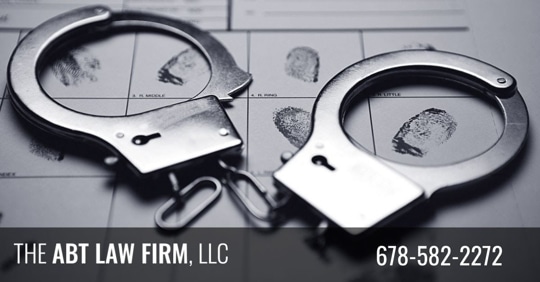Understanding Your Rights After an Arrest
Legal Representation and Right to Counsel
When you find yourself in the back of a police car, handcuffed, and heading to a station, it's crucial to know that you have the right to an attorney. This right is a cornerstone of the American legal system, ensuring that everyone, regardless of their financial status, has access to legal counsel. If you're unable to afford a private attorney, the court will appoint a public defender to represent you. This individual is a licensed lawyer, tasked with providing a defense for those who cannot pay for private representation. It's important to understand that having an attorney can significantly affect the outcome of your case, as they can navigate the complexities of the law, advocate on your behalf, and protect your rights throughout the legal process.
Miranda Rights and Their Implications
Upon arrest, law enforcement officers are required to recite your Miranda Rights. These rights include the right to remain silent, which means you are not obligated to answer questions that could incriminate you. Additionally, you have the right to an attorney, and if you cannot afford one, one will be provided for you. Understanding these rights is paramount because anything you say can be used against you in court. Waiving these rights, especially the right to remain silent can have serious consequences. It's often in your best interest to exercise these rights and wait for legal counsel before making any statements to the police.
Navigating the Booking Process
What to Expect During Booking
The booking process can be intimidating, but knowing what to expect can help alleviate some of the stress. After an arrest, you'll be taken to a police station where officers will record your personal information, such as your name, date of birth, and address. You'll also be fingerprinted and photographed for the record. This process is standard procedure and is used to identify you within the legal system. It's important to remain calm and comply with the officers' instructions during this process, as it can affect the initial impression you make on the authorities handling your case.
The Importance of Accurate Information
During the booking process, it's critical to provide accurate and truthful information. Any attempt to give false information can lead to additional charges and complicate your case. Remember, the information you provide will be used to establish your identity in the legal system and is essential for any court documents and proceedings that will follow. It's also important to note that providing false information can damage your credibility, which can have a negative impact on how you are perceived by judges and prosecutors. Honesty is the best policy when it comes to interacting with law enforcement and the legal system.
Bail and Bond Considerations
Understanding Bail Amounts and Conditions
Bail is a set amount of money that acts as insurance between the court and the person in custody. The court sets bail amounts based on several factors, including the severity of the alleged crime, the defendant's criminal history, and the likelihood of the defendant fleeing before trial. Sometimes, conditions are also attached to bail, such as travel restrictions or mandatory check-ins with law enforcement. It's important to understand that bail is not a punishment but rather a way to ensure that defendants appear at their scheduled court dates while allowing them to remain free during the pre-trial period.
Options for Release: Cash Bail, Bond, and O.R.
There are several options for securing release after an arrest. Cash bail involves paying the full bail amount in cash, which is returned after the defendant complies with all court requirements. If the bail amount is too high, a bail bond, typically secured through a bail bond agent for a non-refundable fee, can be used as an alternative. Another option is being released on your own recognizance (O.R.), which means you're released without having to pay bail, based on the promise that you will return for all court proceedings. Each method has its own set of requirements and considerations, so it's essential to choose the one that best suits your situation.
The Role of Arraignment and Pleas
The Purpose of the Arraignment Hearing
The arraignment is your first appearance before a judge after an arrest, and it serves several purposes. During this hearing, you will be formally charged with a crime, and the judge will explain your rights and the charges against you. This is also when you'll have the opportunity to enter a plea: guilty, not guilty, or no contest. The arraignment sets the stage for the legal process that follows, including setting dates for future hearings or the trial. It's a critical moment in your case, and having legal representation can help ensure that your rights are protected and that you make informed decisions.
Deciding How to Plead: Guilty, Not Guilty, or No Contest
Choosing how to plead is a decision that should not be taken lightly, as it will have a significant impact on the direction of your case. Pleading guilty means you admit to the crime and accept the consequences, which can include sentencing. Pleading not guilty means you deny the charges and will go to trial to contest them. Pleading no contest, also known as nolo contendere, means you do not contest the charges, but you also do not admit guilt; the court will decide your punishment as if you had pleaded guilty. Each plea has strategic implications, and your attorney can provide guidance on the best course of action based on the evidence and circumstances of your case.
Post-Arrest Support and Resources
Seeking Legal Aid and Support Services
After an arrest, it's essential to seek legal aid and support services as soon as possible. There are numerous resources available to help you navigate the legal system, including legal aid societies, pro bono attorneys, and various support groups. These organizations can provide guidance, representation, and emotional support during what is often a challenging time. It's important to act quickly to secure these resources, as they can be instrumental in building a strong defense and ensuring that your rights are upheld throughout the legal process.
Preparing for the Legal Journey Ahead
Preparing for the legal journey ahead requires organization, diligence, and a proactive mindset. Start by gathering any documents and evidence that may be relevant to your case. Keep a detailed record of all events and interactions related to your arrest and charges. Stay informed about your legal rights and responsibilities, and make sure to attend all scheduled court appearances. Communication with your attorney is key; make sure to discuss any concerns or questions you may have about your case. Remember, the decisions you make now can have a lasting impact on your future, so it's important to be thorough and thoughtful as you prepare for what lies ahead.
The Abt Law Firm, LLC
If you or a loved one has been arrested in Atlanta, GA, and need expert criminal defense, The Abt Law Firm, LLC is here to help. Our experienced attorneys understand the intricacies of the legal system and are committed to protecting your rights and securing the best possible outcome for your case. Don't navigate these challenging waters alone; contact us today to schedule a consultation and take the first step toward a strong defense. Located at 2295 Parklake Drive NE, Suite 525, Atlanta, GA, we're ready to provide the support and representation you need during this critical time.







